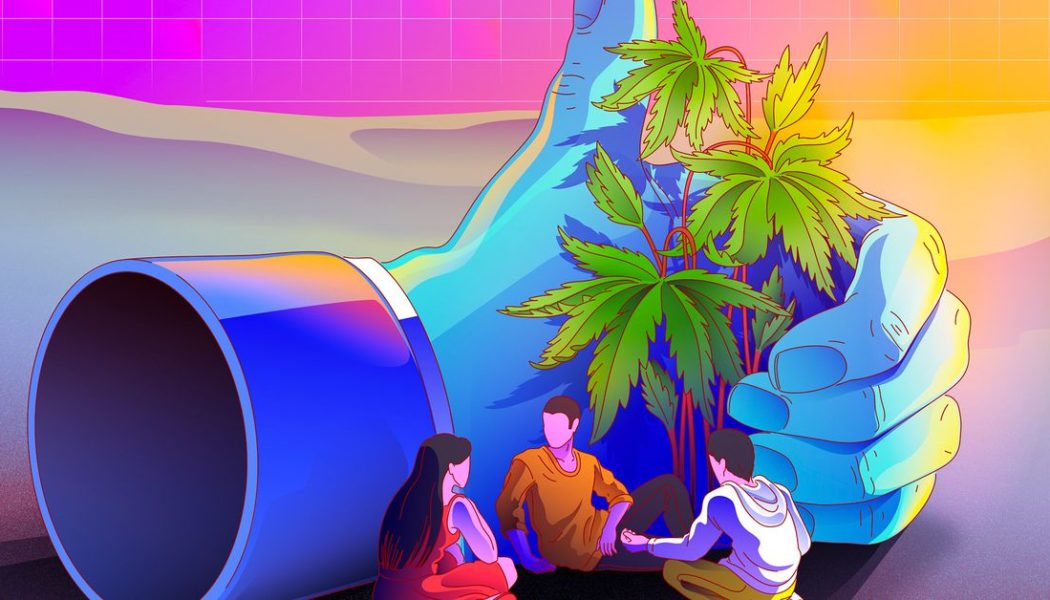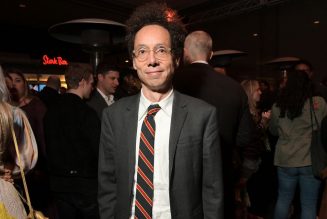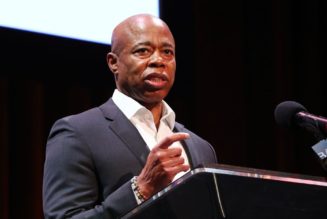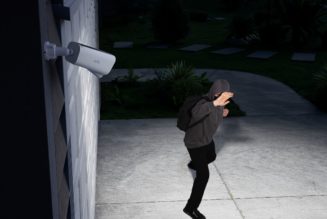
One weekend about a year ago in Balangoda, a misty mountain town outside Colombo, the Sri Lankan capital, Sanjana was supposed to meet a dealer she found on Thriloka Wijaya Pathra, a Facebook group for cannabis users in Sri Lanka. Like many strangers who had connected over Facebook, Sanjana had decided to buy a few joints of ganja (a local word for weed). Then a family emergency happened and Sanjana couldn’t make it. A few days later, another group member told Sanjana that police caught her dealer. Perhaps he was released after a fine. Perhaps he went behind the bars. Sanjana didn’t hear back.
“The only thing I know is that this stuff is illegal in Sri Lanka and it can get you in trouble,” Sanjana, now an 18-year-old, recalled to The Verge, while waiting for another dealer to bring ganja grown domestically, 4.5 hours north of Colombo. “I was at my boyfriend’s place in Balangoda,” Sanjana said, chuckling. “If it’s two to three joints, I’ve heard they release you after a $30 fine. Plus my boyfriend works in the police. He could’ve got me out.”
Cannabis has a complicated history in the island nation. While native medicinal practitioners used cannabis to treat illnesses in the past, a law introduced in 1935 under British colonial rule criminalized cannabis. Though a 1967 government act permitted registered Ayurvedic doctors to use cannabis for medicinal purposes, today Sri Lanka still considers cannabis to be a “dangerous drug,” and recreational use can result in fines and years of prison time.
Despite these laws, cannabis is the most-used illicit drug in Sri Lanka, with an estimated 600,000 users; natural scientist Wasantha Sena Weliange believes that number is much higher. In recent years, cannabis has become extremely popular with Gen Z.
Buwanka, 25, is an Instagram influencer in Colombo who despised cannabis as a schoolkid. The anti-cannabis rhetoric, Buwanka said, comes from his parents’ generation, who believed cannabis was harmful. “Because that’s what everyone thought in the 1960s and 1970s. My parents fed me the same mentality. So as a teen, I was the first to report my classmates if they smoked ganja,” said Buwanka, who only wanted to reveal his first name.
But things changed when he left for college in Adelaide, Australia. Thousands of miles away from his Sri Lankan home, he began to feel lonely. When his roommate gave him ganja, he gave it a try. “I became happier. I started going out and joining all the cool events in the city.”
Buwanka now thinks that people refuse cannabis not because they dislike it, but because it’s tied to social stigma. “We constantly believe ganja is bad and if someone smokes ganja, they are addicts who have no use for society.” But Facebook communities, he said, are working toward changing this stereotype by gathering like-minded people into one place and creating a forum for discussion. “People feel that Facebook is safer than real life. They are more confident in sharing what they want on social media.”
When Sanjana joined Thriloka Wijaya Pathra two years ago, there were only a few thousand members — now there are over 177,000. The group, which takes its name from the Sanskrit for cannabis, provides a platform for cannabis users to get together and share information: different uses of cannabis, medicinal qualities, details on how to roll a joint, etc. Members post pictures of their cannabis plants in tiny pots grown in secret inside their houses. And of course there are memes and TikTok videos.
Anil, 19, smokes weed in Ja-Ela, a town just a few miles north of Colombo. He started smoking at 15 with his rugby teammates. “Every stoner grows a ganja plant, or at least we try,” he told The Verge, recalling his unsuccessful attempts to grow cannabis in a clay pot. “Because this shit is hard to find.”
In Sri Lanka, police often raid cannabis plantations, destroy them, and put traditional growers behind bars. This leads to a shortage of fresh, local weed. Smokers, Anil said, have found a solution: Kerala ganja — commonly known as KG — smuggled from South India to Sri Lanka. Anil meets KG users in a place he calls “smokers den” in Colombo, a sort of cannabis retreat run by a 30-year-old in his private apartment where smokers can meet, chat, dance, and party.
Although local distributors spray poisonous ingredients like formaldehyde and domestic pest killers like Mortein on these products, making commonly available KG a harmful narcotic, Anil boasts that he smokes “pure KG” — cannabis without added chemicals — and can identify the “real stuff” when he sees it.
“There’s nothing like pure KG now. All KG is a shit mix of chemicals,” said Dinesh, 28, who is a drug dealer and a tuk-tuk driver in the Colombo suburb of Mattakkuliya. Like Dinesh, many weed distributors in Sri Lanka are tuk-tuk drivers who sell low-quality, cheap KG. Dinesh, who started dealing drugs when he was 16, soon after he dropped out of school, considers himself “just a pawn” in a large drug supply chain. He receives goods from several others.
While his customers come from all walks of life, Dinesh said that most of them are teens. Most young users, he said, don’t come face to face; they send someone older to buy ganja.
His prices start at $2 for a small packet of KG, enough for a joint. “This cheap stuff has lots of chemicals. The more chemicals, the more you feel,” said Dinesh. “It’s a different kind of high. It’s the sudden thrill that young boys, and occasionally girls, love.”
Dinesh agrees that teens are aware of the harmful substances in chemically treated KG. “But it’s what most people can afford,” he said. “Rich kids come to me and buy hash and kush [imported drugs with higher levels of THC].” Dinesh sells a gram of kush for about 7,000 LKR ($40).
Janith, a 19-year-old in Colombo who goes to a paid private school, said his friends also use expensive edibles, like gummies from Canada that go for $100. Janith and his mates consider KG a “bad trip” they avoid. But young smokers often don’t have an idea about what is good or not, so they search on Reddit or join Facebook groups to find information and connect with fellow smokers, Janith said.
Although a March announcement on the Thriloka Wijaya Pathra group asks members to not talk about KG, a June post from a member asks his fellow smokers what they prefer, KG or local ganja. Most users wrote KG. A handful of them said they use KG since local ganja is hard to find. Sanjana agreed. “It’s cheap. It’s everywhere.”
Sanjana, who has smoked KG, believes that Facebook groups like Thriloka Wijaya Pathra play a key role in educating smokers. When Sanjana initially joined, she saw a series of Facebook posts about cannabis.
“Maybe there are bad sides to cannabis, but why would I stop something if it makes me feel good?” said Sanjana, “In the past, some people commented against using cannabis. But now people get correct information and see there’s no harm. It’s all thanks to these groups.”
Gen Z aren’t the only ones using social media to talk about cannabis. When Buwanka posted an IGTV video about cannabis and why it should be legalized in Sri Lanka about eight months ago, it caught attention.
But Buwanka’s video didn’t go viral on Instagram. It was when cannabis community groups on Facebook shared it that he received a roaring response. There were 138,000 views on popular Facebook pages like Weedboy. Comments poured in. People loved Buwanka’s video.
Buwanka said it was because he spoke in a local language, Sinhala. “Most cannabis users don’t speak English. When you go online, you can read about cannabis, but it’s all in English. I needed to do something that everyone could understand.”
“Only a handful of urban people use Instagram, but everyone’s on Facebook,” said Buwanka. “That’s why it went viral on Facebook.” While over 30 percent of Sri Lankans have a Facebook account, only 4.7 percent of Sri Lankans are on Instagram. Most Facebook users are young. Over a third of them are under 24.
Of course, safe use of cannabis isn’t the only thing they talk about. While these Facebook groups don’t allow users to sell cannabis or share details about dealers in public, Buwanka said that Facebook users still talk about these things. “Especially during lockdowns, people would come to these groups and comment, ‘I’m from Gampola and we’ve run dry over here.’ Or, ‘My tuk-tuk dealer has tested positive for COVID. Can someone send me some ganja?’”
These groups have connected the cannabis community with one another, giving smokers a chance to share details outside the groups. Buwanka said that members chat on Messenger and share supplier details.
“You make friends in these groups, but it’s hard to send ganja to some other place because it’s risky. I know people put it in perfume bottles and send it via delivery guys,” said Sanjana.
During holidays, Sanjana smokes a few joints with her 17-year-old cousin; they post about cannabis on Thriloka Wijaya Pathra and share photos. “Because our society expects girls to be cultural, people think that cannabis is only for boys and girls can’t use it,” said Sanjana. “That’s bullshit. Everyone can use it.”
Sanjana thinks that Facebook helps change how people think. “When I first posted, people wrote negative things. Boys thought, ‘Girls can’t use ganja.’ But now a lot of members support the idea of girls smoking,” said Sanjana, who responded to negative comments with a rolling-eyes emoji and wrote, “Girls need to feel good, just like you do.”
While young smokers are finding community on Facebook, 56-year-old natural scientist Wasantha Sena Weliange, who is fighting to legalize cannabis in Sri Lanka, runs his own Facebook group to support generational cannabis farmers. Weliange, who wrote a Sinhala-language book about cannabis, is now building a hemp museum and a cannabis village in Thanamalvila in the southeast of the country. “On Facebook, we are trying to establish knowledge and influence young people to join the fight to legalize cannabis,” Weliange said. “We get calls from a lot of young people. They are happy to see this. They are curious. Some of them ask me, ‘Can I mix ganja with yogurt?’ or ‘What can we make from them?’”
Weliange believes that legalizing cannabis will not only help farmers, but also prevent young people from using chemically processed KG and other harmful substances.
This also resonated with Buwanka. “If you can just walk into a shop and buy fresh ganja at affordable prices, why would you choose harmful stuff?” he said.
While the government has discussed planting cannabis for export purposes, Sri Lanka’s dominant Buddhist clergy are against decriminalizing cannabis for everyday use. But both Gen Z and older generations are still using it, and frequenting Facebook to meet each other. “If it wasn’t for social media, I don’t think we can come together around a tree and talk about cannabis,” Buwanka said.
Meanwhile, Anil still believes he can identify good KG, while Janith says friends make brownies when they get together. Dinesh knows his job is risky, as police can raid him, but he’s happy being a dealer as long as it brings him money.
“If they legalize it, I will be the first to plant ganja in my garden,” said Sanjana, who’s planning to study a Japanese-language course in order to go work in Japan with her cousin. “But the only problem is that cannabis is illegal in Japan. I’ve heard you can’t get around it like we do here.”








